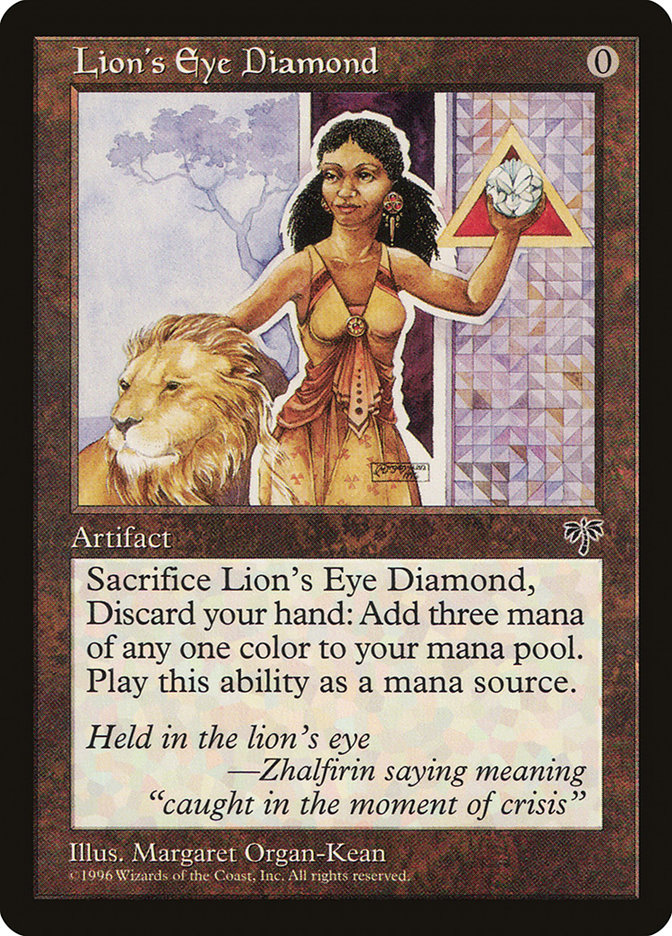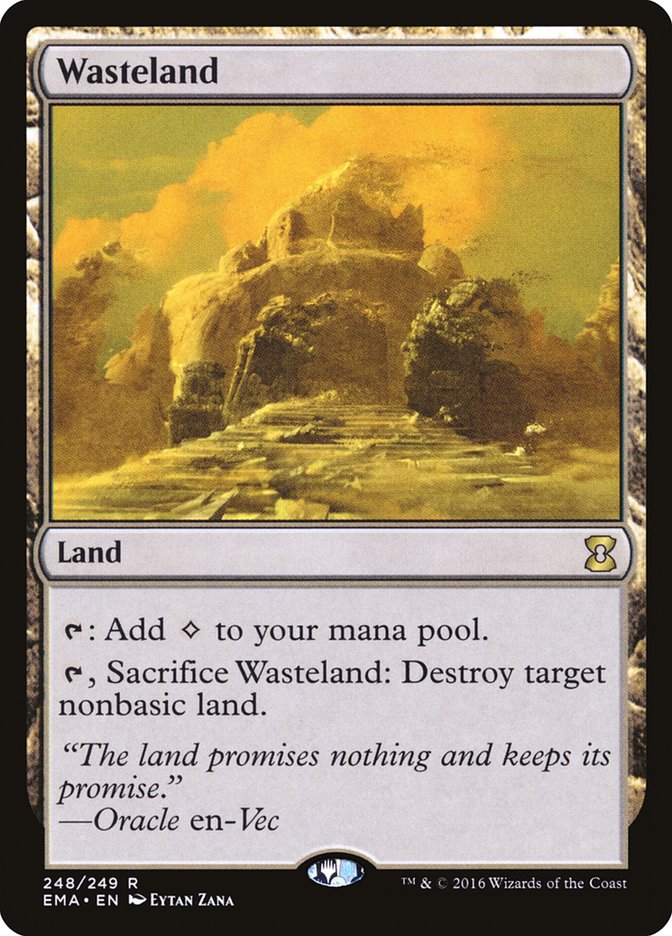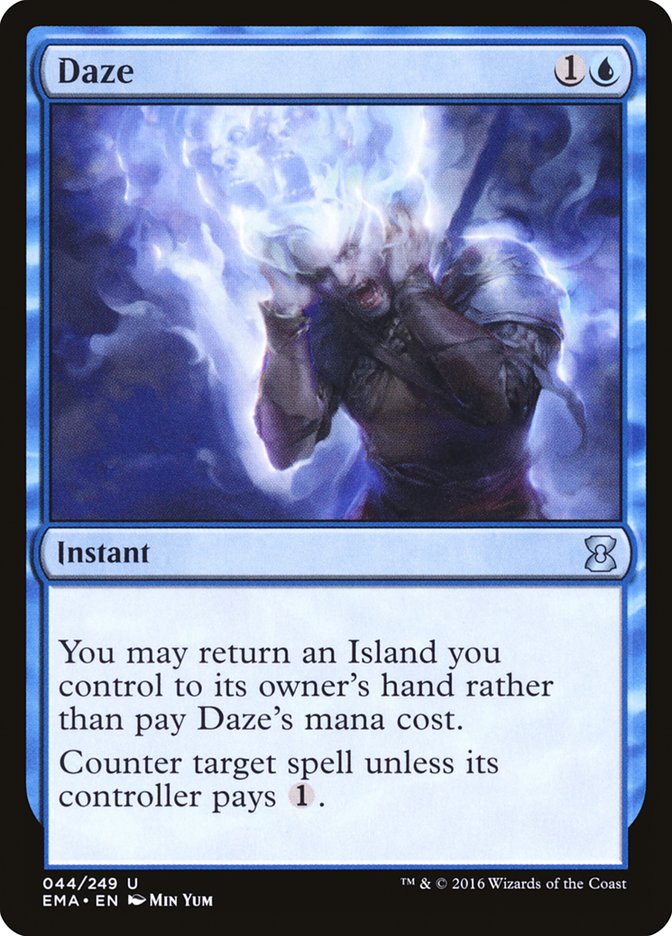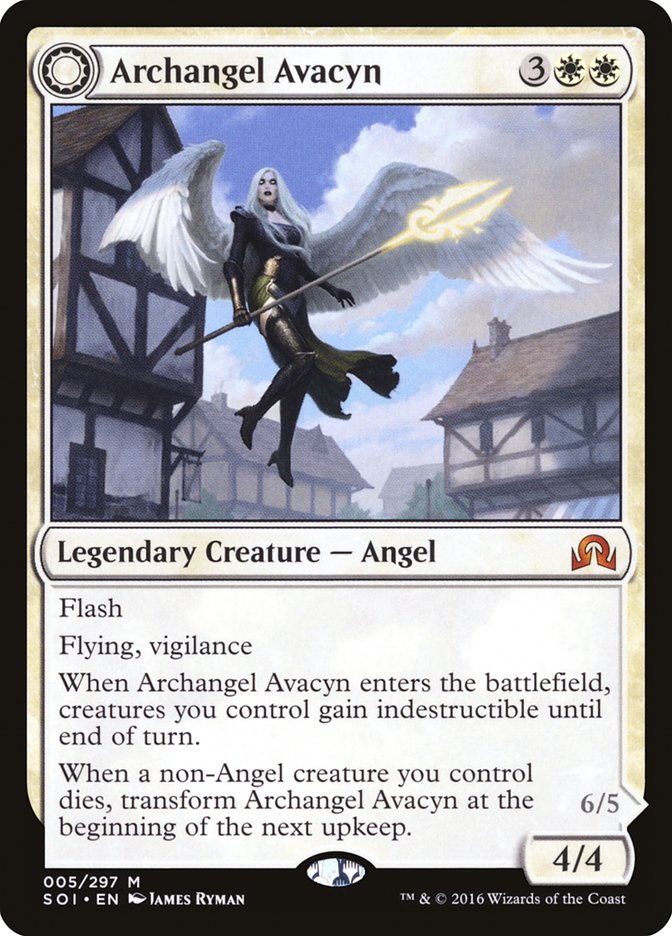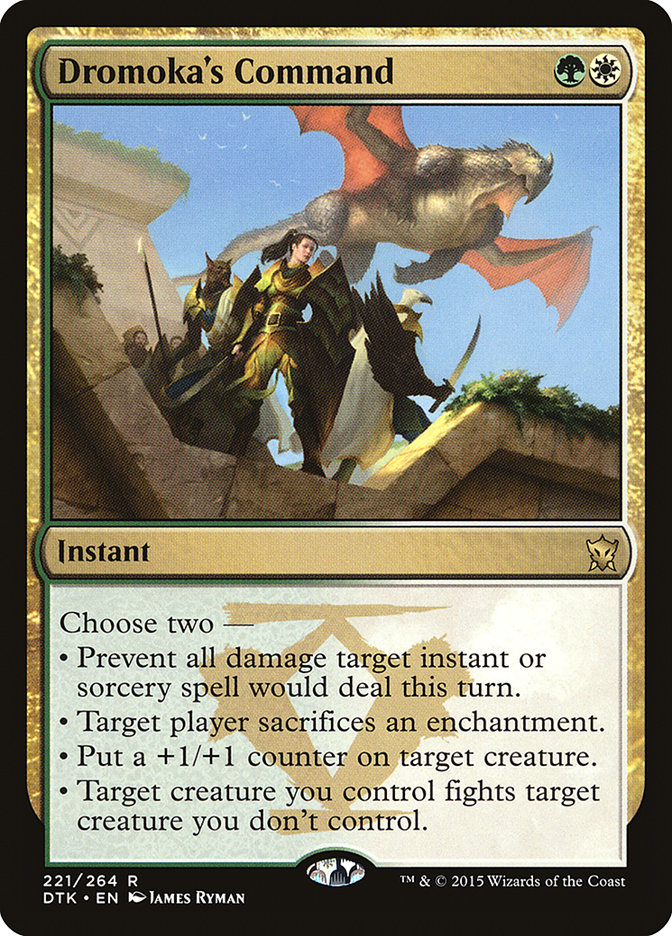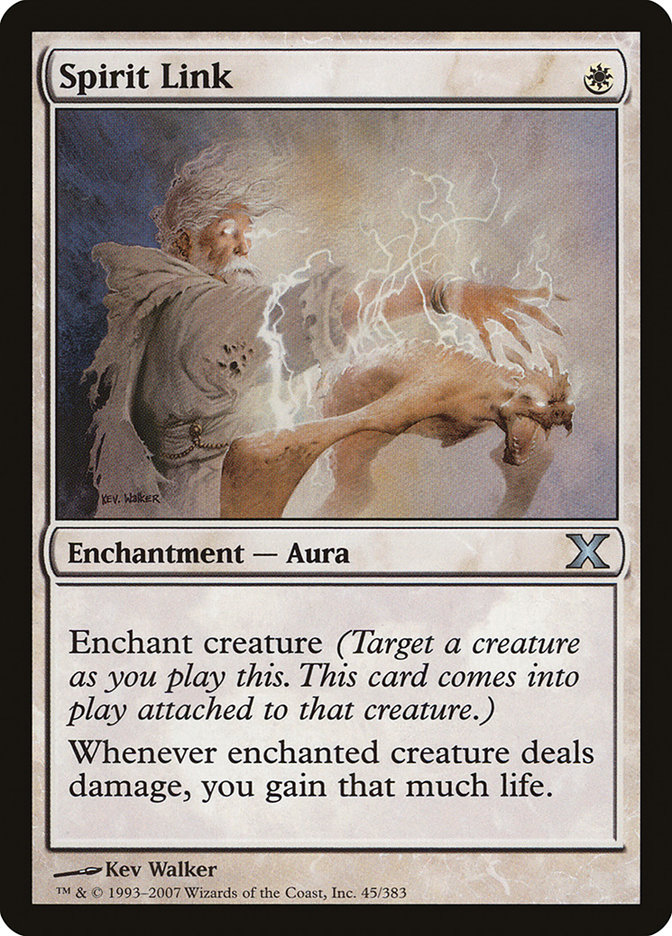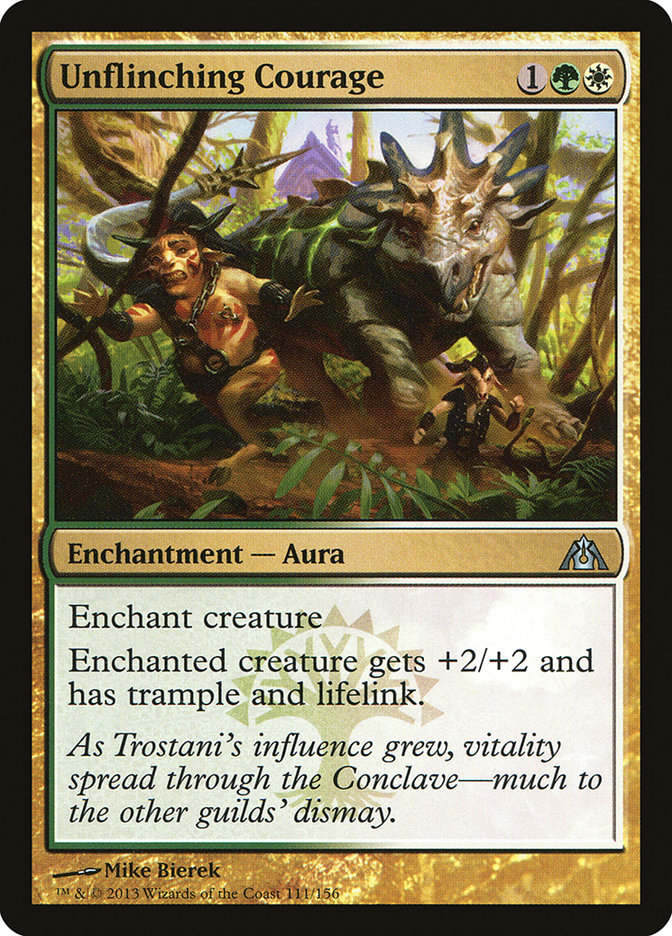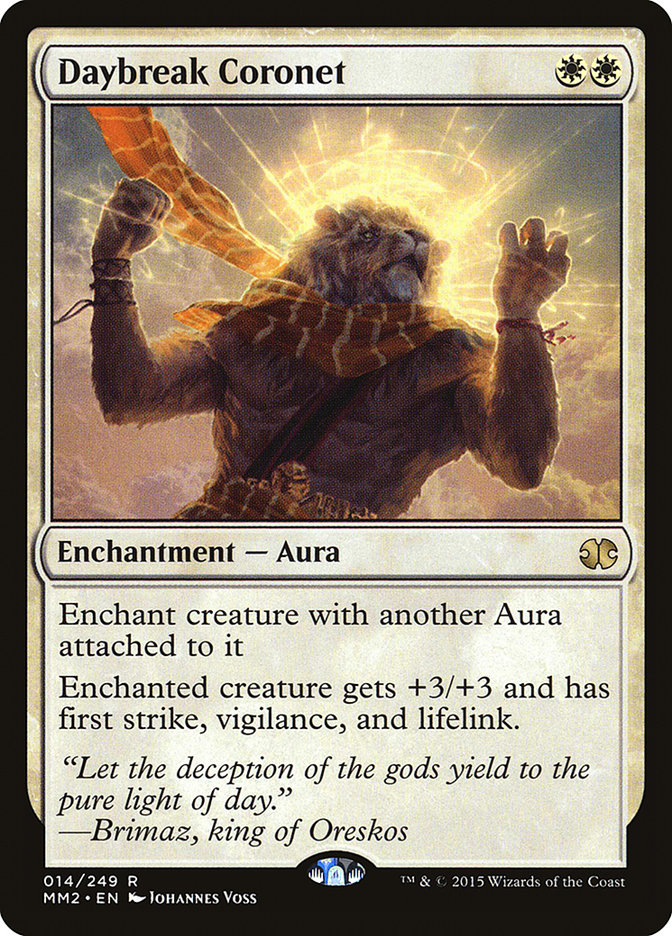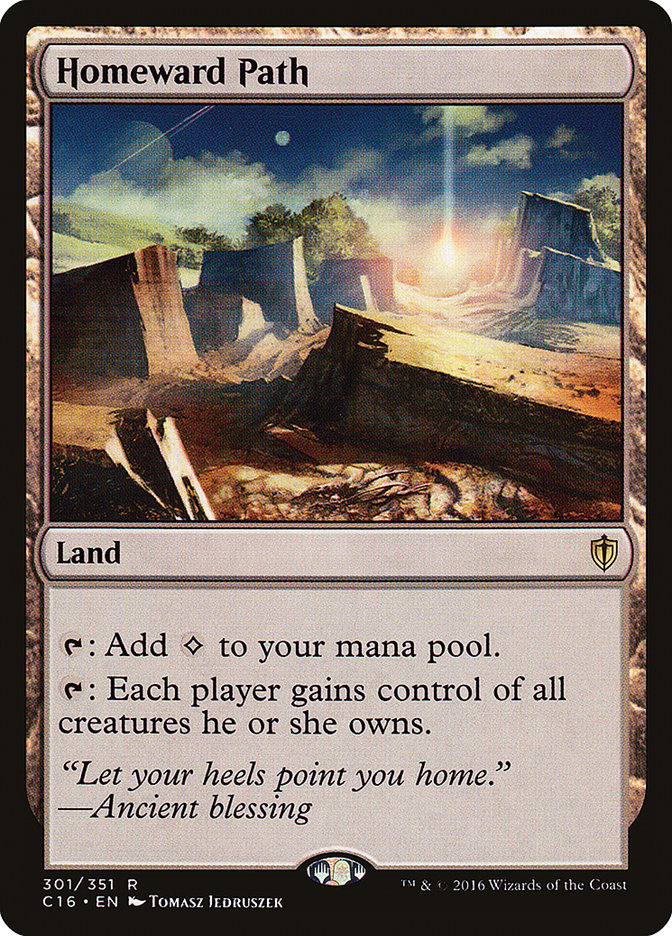Last week I began chronicling the lessons and morals I have obtained traveling on the #SCGTour; it’s only natural for this week to feature the conclusion of the list. Due to my desire to keep my editor happy (via staying within word count limits) and have a longer wrap-up at the end of the article, I’m going to focus on longer lessons learned from specific events of this year.
Many of the lessons learned towards the end of the year reinforced earlier lessons or assisted in helping me come to a realization that I should’ve accepted sooner. Even with fewer “new” ideas being learned, the second half of the year led to significantly more development than I could have comprehended in the first half.
Worcester (July 9-10)
Legacy is really hard.
Every format has its specialists, and outside of that group, Eternal formats are going to most often be dominated by people who are most familiar with their own deck. Going into the Players’ Championship last weekend, the people who were most often talked about were Joe Lossett and Caleb Scherer, the two players who are known masters of their respective archetypes and avoid dabbling with others.
In Worcester, I knew I had a significant number of reps with older versions of Miracles and was comfortable playing the deck in a slower game, preferring to place myself in the reactive seat and sculpt my gameplan around what the opponent does.
The Magic Online metagame at the time scared me. I became afraid of the Colorless Eldrazi decks that were cropping up. These aggressive decks that could go long let to me wanting to play a version of Miracles overloading on Monastery Mentor, hoping to have cards that could help me close a game faster.
With a lower number of games under my belt than I’d like to admit, I ended up floundering in the earlier rounds of the tournament while trying to get my proverbial sea legs with the midrange take on the archetype. These mistakes cost me precious in-game percentage points and ultimately the tournament.
A running theme of this year has been “play what you know” in most Eternal formats, and this weekend was no different. In hindsight it would’ve been a much better plan to play the legendary variant of Miracles (similar to Joe Lossett’s version of the deck) and hope to only play against Eldrazi one or two times. This plan would have played better to my strengths as a player rather than forcing me to play the unfamiliar aggro-control deck that Monastery Mentor lends itself to, which conclusively put me at a disadvantage across a majority of the field.
Columbus (July 23-24)
Columbus marked a dynamic change in how I began preparing for tournaments, particularly when it came to deck construction. Columbus was the first event where I worked with the team that would come to be known as Next Ridge Nexus.
I had the opportunity to work with Aaron Sorrells on Bant Company, and his work on tweaking numbers in the deck was absolutely invaluable to each of our success. Despite neither of us breaking into the Top 8 of the tournament, the sheer volume of Bant Company decks in Day 2 of contention was more than slightly affirming of our deck selection.
Creatures (25)
- 2 Jace, Vryn's Prodigy
- 1 Nissa, Vastwood Seer
- 4 Bounding Krasis
- 4 Reflector Mage
- 4 Sylvan Advocate
- 2 Tireless Tracker
- 4 Duskwatch Recruiter
- 4 Spell Queller
Planeswalkers (2)
Lands (25)
Spells (8)

Creatures (25)
- 2 Jace, Vryn's Prodigy
- 3 Bounding Krasis
- 4 Reflector Mage
- 4 Sylvan Advocate
- 1 Archangel Avacyn
- 2 Tireless Tracker
- 1 Lambholt Pacifist
- 4 Duskwatch Recruiter
- 4 Spell Queller
Planeswalkers (2)
Lands (26)
Spells (8)

A good portion of what I learned this weekend was how to conduct myself professionally during a tournament and communicate with a team manager between rounds. Being able to properly maintain a line of communication with a specific person or organization in the middle of a tournament isn’t always easy, but working with a great group of people heavily incentivizes one to learn a few new tricks in the name of maintaining that relationship.
Between the private discussion channels created in the name of bettering Next Ridge Nexus and the camaraderie felt between teammates, I’m confident that my outlook on tournament Magic has been permanently altered for the better.
Baltimore (July 30-31)
I don’t tilt. It’s very hard for me to get sincerely rattled in a match of Magic. Something has to get under my skin or I have to be incredibly disappointed with myself to actually let it affect me once the match is over, the slip is signed, and everything is packed up.
I don’t tilt.
Until I do.
In a match against Ted Felicetti, I had the game very close to locked up. He has a Selfless Spirit and otherwise empty battlefield to my flipped Lambholt Pacifist; Gideon, Ally of Zendikar; and three other creatures.
I attacked in order to put him down to five life.
He flashed in Archangel Avacyn. I looked at the Dromoka’s Command in my hand and thought:
“Okay, that doesn’t matter. I can make it so he still only has a single blocker and will die under the same circumstances next turn. I just need to gun down the Selfless Spirit before Archangel Avacyn hits the battlefield. That way she can’t kill my Gideon (currently at five loyalty), he presumably won’t have enough creatures to stay alive, and will be dead the following turn.”
I smile, realizing the game is all but locked up, and say “Okay, trigger on the stack, I’m going to cast Dromoka’s Command to put a counter on my Knight Token and make my Gideon fight Selfless Spirit.”
In case you missed the problem of what my mouth did, let me repeat and elaborate on where I messed up:
“Okay, trigger on the stack, I’m going to….”
“…trigger on the stack…”
What was an honest mistake and misspeak on my part resulted in Felicetti being able to flip his Avacyn (wiping out most of my battlefield), attack Gideon to kill it, and win the game a turn later. I couldn’t believe I’d done something so bone-headed.
I can hardly remember what happened during the rest of the tournament. I just remember feeling some mix of disappointment in myself, self-pity, and anger towards myself. I threw away a couple of rounds that were within my grasp as a result of sloppy play from my being on tilt, and it didn’t really fix itself until a few days later.
I was still so upset about the interaction the following day that I ended up dropping from the Legacy Classic (at 1-0) to try to decompress with a friend at the Baltimore Aquarium down the street.
This tournament put into perspective that, despite thinking I have nerves of steel, there are times when a flaw in my emotional armor becomes apparent, and it becomes painfully clear that a chain can only be as strong as its weakest link. I alluded towards being able to let go and not be upset about things going poorly last week, but the second #SCGBALT of this year really drove home how important it is to be able to experience failure without allowing it to swallow you in the process.
New Jersey Invitational (August 19-21)
Sometimes it’s okay to let go and accept what you can’t change.
This weekend I physically sleeved up G/W Hexproof for the first time and played it through a field that was significantly more hostile towards it than I’d hoped.
Creatures (12)
Lands (21)
Spells (27)

A misplaced call on the expected metagame left Brennan DeCandio’s and my G/W Angels deck looking significantly worse than we’d expected…and me playing in the Open on Saturday.
Many people tend to complain about how hard it is to be successful in Modern and how they can’t beat anything. They’re not entirely wrong.
To paraphrase my love letter to Modern, anything in Modern can be beaten. Unfortunately, that doesn’t mean that any deck in Modern can beat everything.
Going into the Invitational weekend, Dredge was the new kid on the block and I wanted to have a fantastic a matchup against the deck as possible. In Modern I also tend to succeed with proactive decks, and while going through the archives of the Open in Syracuse the previous weekend, I happened upon this:
Despite Todd playing this quite well (and getting a little unlucky), Jason decidedly rolled over Dredge without even drawing Rest in Peace or doing anything outside of Hexproof’s normal gameplan.
Between the excellent matchup against Dredge and the perceived increase of Burn decks in Invitationals, playing a deck with a pile of maindeck sources of lifegain was incredibly attractive:
The Modern Open featured success on the first day and overwhelming odds on the second. Between three Tron matchups and two Infect matchups, my bid for Top 8 went in an unsurprising manner.
Despite being dead for Top 8, it was easy to maintain composure. Going into the event, I recognized that I was taking a calculated risk. My Tron and Infect matchups were going to suffer, but I would be stronger against Burn, Death’s Shadow, Dredge, and creature-based aggro decks. My matchup lottery came up bad, but understanding the choices I was making from the get-go made it significantly easier to cope with.
A lot of Magic is self-awareness and understanding the math involved in the game. Accept that you aren’t above statistics (even the outliers) and it’s easier to find yourself at peace with some of the negative results that will inevitably find their way in your life.
Indianapolis (October 1-2)
Play more Magic. Always play more Magic.
For the first weekend of Kaladesh Standard I went into the tournament almost completely cold, jamming a deck that was primarily from the mind of Brennan DeCandio with some tweaks from Jadine Klomparens:
Creatures (16)
Lands (24)
Spells (20)

This is simultaneously the most fun deck I’ve ever registered in a Standard Open and the most excruciating deck I’ve ever played in a Standard Open.
Throughout the tournament, some of the holes in the deck or little numbers that could be played with became more and more apparent. Whether it was wishing for other cards in the deck to grab with Inventors’ Fair (DeCandio’s Key to the City, for example) or realizing I’d overcommitted on black mana while making my manabase suffer as a result, there were many things that I would have been able to provide more valuable input for the tournament if I’d just played with the deck for several hours beforehand.
If my column had a name, at this point I’m confident the title would be something to the effect of “Nothing Replaces Games of Magic,” and this weekend proved that point.
The way I felt this weekend has led me to already begin making plans to playtest Aether Revolt cards before #SCGCOL next year. As long as I’m playing Magic as seriously as I do now, I won’t make the same mistake again.
Season 3 Regional Championships (October 15)
Unlike Eternal formats, Standard is a fickle mistress that doesn’t always reward familiarity.
At the #SCGRegionals in Atlanta, Georgia, I piloted a version of Metalwork Colossus to a relatively mediocre Top 32 finish:
Creatures (13)
Lands (24)
Spells (22)

After W/R Vehicles dominated the first post-Kaladesh events so decidedly, it seemed that Colossus needed to be heavily slanted to have game against the aggressive deck. In reality, the answer should have been to scrap the deck.
I played W/R decks featuring Toolcraft Exemplar for all but three rounds of the Swiss and was mostly rewarded for the slant on the deck, but the deck was made significantly weaker against everything else. It really begged the question, if the deck can’t even succeed when repeatedly playing against the deck it is built to beat, when is it succeeding?
Sometimes it’s okay to admit that a pet deck isn’t a good choice for a given metagame*, that at some point Paper isn’t going to beat Scissors, and that switching to Rock is a much easier solution to beating Scissors.
*Relative to the rest of the field. If there’s only one deck, this is a reasonable choice, but if your deck becomes weaker to everything else for the sake of beating 40% of the room, you’re doing it wrong.
Milwaukee (October 22-23)
Everybody loses sometimes. Some weekends you run well, you play exceptionally, your deck choice is wonderful, and you lose. Sometimes it’s easy to lose sight of that. Despite a 6-0 start in the Open, I found myself losing to a flurry of Blood Moons and turn 2 kills in the final rounds of the Open to finish 6-3. I was more than a little torn up at first, but after some time to pick myself back up, I was soon enough in high spirits.
Sometimes you just have to accept that which you cannot change. Captain Picard put it more simply than I ever could:
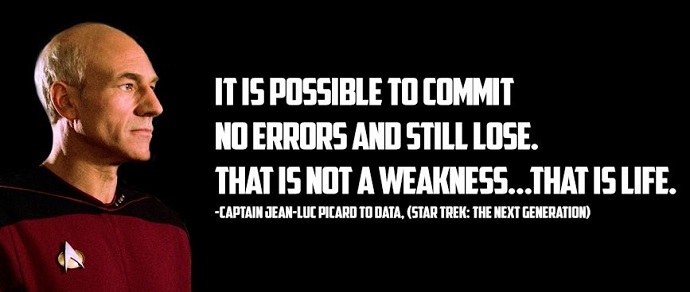
Baltimore (November 5-6)
Contradicting what I said earlier about sticking to what you know, for #SCGBALT I played a deck with several cards that I’d never registered in a physical tournament before.
What’s the difference? What led to the change of heart? I played games of Magic; hours of Magic, in fact.
Creatures (15)
Lands (19)
Spells (26)

This deck is fantastic and I can’t recommend it enough. It is likely going to remain my weapon of choice in Legacy going forward. This version of Grixis/Temur/Four-Color Delver has many of the selection and grinding elements that are present in Grixis Delver while having the closing power of Temur or Sultai Delver via Tarmogoyf. I’ll likely do a more thorough article on the deck before Grand Prix Louisville in a few weeks.
The lesson I learned is something that I wished I’d realized before the tournament. To put it as simply as possible, if a threat isn’t going to kill you, it is better to try to develop one’s own threats before answering opposing threats.
The reason for this in a tempo-oriented strategy like Delver is due to the deck’s need to apply pressure while answering the opponent’s strategy. Assuming that the opponent can generally deploy some sort of threat each turn, prioritizing removal over threats is going to leave the Delver pilot in a perpetual state of answering threats while behind, which isn’t going to play to the Delver deck’s strengths.
The longer the game goes, the worse the Delver deck’s soft permission and mana-denial package is going to be, and that drop in card quality is going to result in things becoming much harder for the controller of Fugitive Wizard’s cousin.
On the other hand, deploying a threat and taking a bit of extra damage from a threat will put the Delver player in a position to deal damage to the opponent and “tighten the noose” each turn, so-to-speak. The more desperately the opponent has to play, the more likely they are to get caught by a Daze, Wasteland, or Spell Pierce.
Atlanta Invitational (December 2-4)
This one is a lot easier than I initially thought it would be.
“Stay hungry.”
I can’t for the life of me figure out the cause, but my heart just wasn’t in it this weekend. I was fortunate enough to cash the Open, but for the most part it felt like I was just going through the motions.
Do I want $10,000, an invite to the Pro Tour, a spot at the Players’ Championship, a pile of SCG Points, and my own token? Obviously.
Was I prepared to do everything in my power to make those things mine? Not this weekend.
There were several situations I shrugged, did what I thought might work, and was rightfully punished for not hedging better, thinking harder, being more patient, or anything else on a laundry list of things that I could’ve done better. There were some instances where I should have called a judge but didn’t. There were a few instances where I wasn’t clear enough with my opponents and didn’t go back to try to fix it.
I was lazy, and it showed in how sloppily I played a few matches.
This being just three weeks ago keeps it fresh in my brain, and I’m still working on making myself play better.
Am I tired? Maybe. Am I better than this? Absolutely.
Despite me finishing 2016 in a way that was a little disappointing, I don’t plan for it to be the end, and I’m not going to treat it like the end until I reach that point.
Asheville, NC (December 5-January 20)
So many things that are just tips for tournament Magic have seeped into my habits and how I carry myself everywhere, from Friday Night Magic to dealing with government officials.
- Pre-game niceties teach you to interact with ten or more entirely unique strangers every single weekend; it helps with the social anxiety I’ve spent a lot of my life struggling with.
- Regularly interacting with tournament staff and other people in authority has normalized the idea (for me) that people in official positions of authority are people. Properly communicating with them helps alleviate most issues in stressful situations.
- Playing tournament Magic has instilled a sort of deliberateness in me that translates to other walks of life. This regularly translates to confidence in conversation, fluidity in idea-sharing, and an understanding of how to assert oneself in a discussion.
- Spending upwards of thirty hours in a car on a given weekend has given me just about every road experience one can expect to occur in an automobile filled with a bunch of nerds ranging from eighteen years old to their mid-thirties.
It’s hard to put everything I’ve learned into a few thousand words. There are many invaluable experiences that I gained this year that weren’t Magic-related and I’ll take with me for the rest of my life. I already knew how to change a tire, but doing it on a bridge outside of Cincinnati is an entirely different animal. I’ve learned volumes about airports and about the geography of the country.
Would I do it again? Well, I’m excited to do it all over next year, if that tells you anything.


